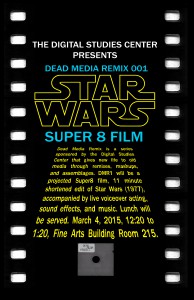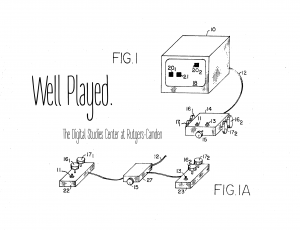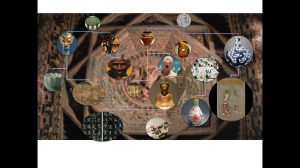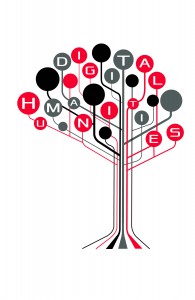The Digital Studies Center is pleased to announce the 2014-2015 Project Grant Winners. The grant program is an initiative of the DSC to support digital studies projects on the Camden campus.
DSC project grants are intended to encourage faculty to pilot, continue, or complete a project using digital technologies or investigating the impact of digital technology on the world.
Grants may be used to start-up projects, assist in developing an existing project, or finish an existing project. Projects can include, but are not limited to:
- Using new digital tools in your existing research
- Text analysis and data-mining techniques
- Data visualization techniques
- Geographic Information Systems projects
- Examining the emerging multimedia and multimodal technologies in the humanities
- Development of new digital tools for analyzing and making available digital resources
- New digital models of publication and dissemination of scholarship
- Digital technology for research and teaching
2014-2015 Grant Winners
It Gets Better: Rutgers-Camden
Ellen Malenas Ledoux and Dawn Walsh, Department of English
Production of Its Gets Better video featuring individual students, student-led groups, faculty members, and administrators spreading the message of acceptance and encouragement central to the project. The It Gets Better Project, is an internet-based initiative in which LGBTQ adults and their allies reach out to young people with a simple, powerful truth: “it gets better.” The video’s production constitutes a Civic Engagement component built into the curriculum of two Spring 2015 semester classes, “New Queer Cinema” and “Gender and Sexuality in Literature,” taught by Dawn Walsh and Ellen Malenas Ledoux respectively.
The Local Knowledge Blog and The Camden Policy Project
Stephen Danley, Department of Public Policy and Administration
These two projects are designed to a) highlight student work and b) facilitate engagement with the broader Camden community. The philosophy behind these two projects is simple. Social media and digital studies are the ideal tool to ensure students’ work doesn’t die a distinguished academic death when it is submitted to a professor. Instead, it can be publicly vetted and contribute to a wider debate on academic topics. When I’ve employed this method, I’ve found students work harder, engage deeper, and have more meaningful interactions with community members. Equally as importantly, as student work improves and becomes more public, it also contributes to thriving civic debate here in Camden. The Local Knowledge Blog is an attempt to encourage students to think about their work as not ending in the classroom but contributing to a public debate. The Camden Policy Project is a Wikispaces site that is inspired by Camden Mayor Dana Redd’s transition task force documents. The documents lack comparisons of best practices, or even adequate sourcing. All of this is understandable; Camden’s City Hall is understaffed and overworked. So my class is creating The Camden Policy Project to crowd source these materials so that staffers, policy workers, citizen activists, and, yes, students looking to source their papers, all have a resource with Camden specific, and wider urban materials.
Self and Identity
James Genone, Department of Philosophy and Religion
The purpose of this project is two-fold: the first goal is to convert my course Self and Identity (730:221) into a course that will count towards the digital studies certificate program; the second is to implement a “flipped classroom” pedagogical approach in the course using digital media. In Self and Identity, we investigate the nature of the self, the identity of persons over time, and the relationship between selfhood, free-will, and moral responsibility, drawing on philosophical texts, literature, and film. As part of developing the course so that it will count towards the digital studies certificate program, I will implement a new unit into the course that introduces the use and theoretical implications of tools that allow for the “quantification” of the self. This technology allows users to track and record many aspects of their daily life: exercise, posture, food consumption, and sleep using wearable computers and software applications to analyze data. Using Fitbit wristbands, students will take turns experimenting with quantifying their own life for one week using personal tracking software, and will write a paper discussing their personal impressions of how this technology changes their conceptions of health, body image, self-efficacy, and self-criticism against the backdrop of theoretical frameworks for understanding the quantification of the self provided by recent scholarly work on this topic. A further aim of this part of the course will be to provide a testing ground for theoretical approaches to the role of quantification in our notion of the self in developing my own research on this topic.
The Encyclopedia of Greater Philadelphia
Charlene Mires, Director, Mid-Atlantic Regional Center for the Humanities, Department of History
This project will integrate the open-source digital bibliography tool Zotero into The Encyclopedia of Greater Philadelphia, a collaborative research and civic engagement project based at the Mid-Atlantic Regional Center for the Humanities (MARCH) at Rutgers-Camden. Integrated into the Encyclopedia (http://www.philadelphiaencyclopedia.org), this database will be open to the public in addition to being an important tool for the authors and editors who are creating the Encyclopedia. Citations from the database also add value to the individual topic pages of the Encyclopedia, each of which includes suggestions for further reading.
Digital Storytelling and Book Trailers
Lauren Grodstein, Department of English
During the past decade, commercial publishing has gone digital in ways that have decentered traditional methods of selling, promoting, and reading trade books. Of all these platforms, the book trailer phenomenon is the most surprisingly engaging, as trailers have become a way to bring digital sexiness to the age-old technology of the book. Essentially, book trailers are mini-movies that serve to promote books – mostly novels – in the same way that music videos are used to promote songs.
 Dead Media Remix is a series that gives new life to old media through remixes, mash-ups, and assemblages. DMR001 will be a projected Super8 film excerpt of Star Wars (1977), accompanied by live voiceover acting and sound effects. March 4, 2015, Free Period in the ModLab (FA215). Lunch will be served.
Dead Media Remix is a series that gives new life to old media through remixes, mash-ups, and assemblages. DMR001 will be a projected Super8 film excerpt of Star Wars (1977), accompanied by live voiceover acting and sound effects. March 4, 2015, Free Period in the ModLab (FA215). Lunch will be served.


